Chewbacca Shows the Strength of Loyalty
Chewbacca's bond with Han Solo in "Star Wars" reveals a timeless virtue—loyalty forged in honor, hardship, and brotherhood—still vital in storytelling and in life today.
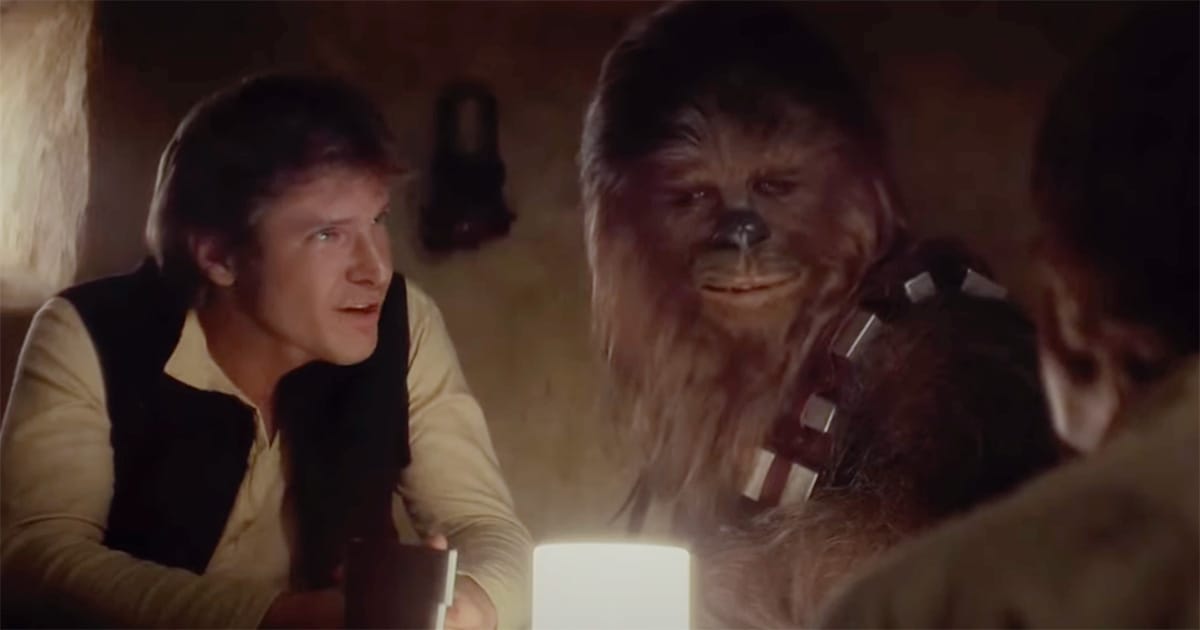
Chewbacca, the towering Wookiee with a heart as formidable as his strength, is one of the most enduring figures in the "Star Wars" galaxy. Since his first appearance in "Star Wars" (1977), he has become more than just Han Solo's co-pilot. For many fans of classic science fiction, Chewbacca represents a steadfast ideal—a companion whose presence affirms that loyalty is not a relic of a bygone era but a virtue still worth championing.
Loyalty, once celebrated in every fireside tale and frontier chronicle, finds rare yet resonant expression in modern science fiction. Where some characters drift between allegiances, Chewbacca stands firm. His growls and roars, though unintelligible to most, communicate a primal and unwavering commitment to those he calls friends. This quiet strength and dogged devotion recall a time when a man's word and his bond were unshakable.
In a saga filled with shifting politics and fragile alliances, Chewbacca is a reminder of simpler and nobler virtues. His loyalty anchors the narrative, giving us a hero who does not lead with speeches but with the constancy of character.
Life Debt and Brotherhood – Origins of Chewbacca's Loyalty
From his first appearance in "Star Wars" (1977), Chewbacca was more than a co-pilot or comic relief. Though he spoke no English, his loyalty to Han Solo was instantly understood. Chewbacca's presence aboard the Millennium Falcon was not that of a hired hand. He was a companion, a protector, and a partner. Their relationship, forged in shared danger and adventure, came to represent one of the most meaningful bonds in science fiction cinema.
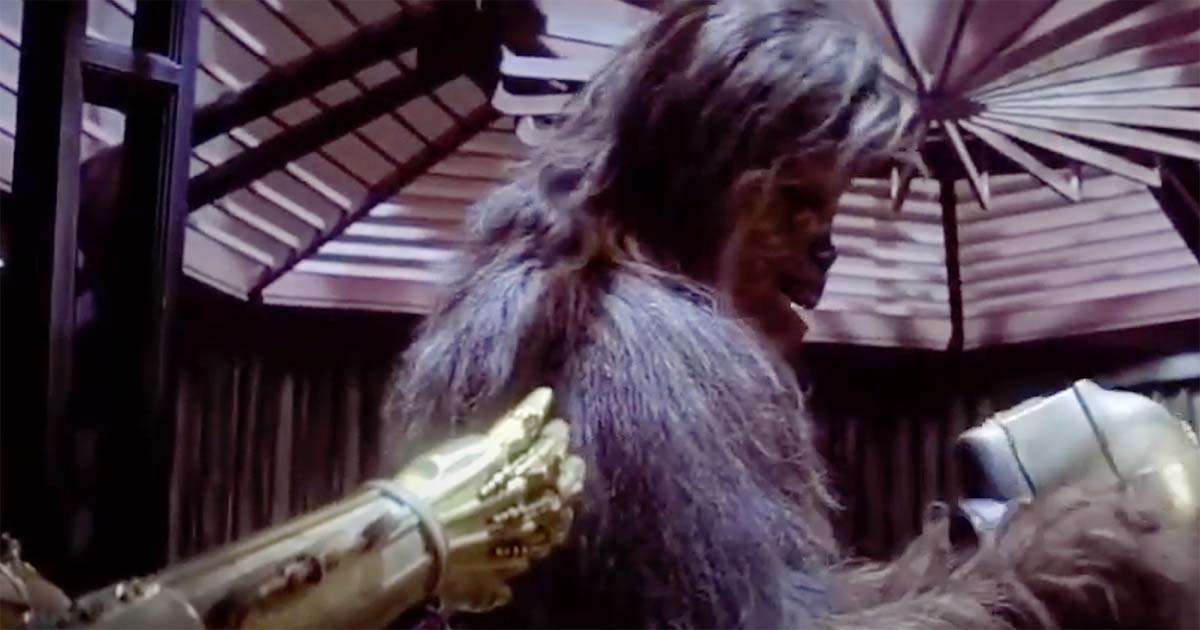
While expanded universe novels and behind-the-scenes lore confirmed that Chewbacca owed Han a life debt, the original films made that truth self-evident. In "The Empire Strikes Back," Chewbacca tries to rebuild C-3PO, carries a wounded Luke, and ultimately refuses to leave Han even when capture is certain. In "Return of the Jedi," he risks death to free Han from Jabba the Hutt. These acts are not those of a subordinate. They are the choices of a warrior bound by honor.
The life debt tradition, rooted in Wookiee culture, reflects ancient concepts of loyalty found in Homeric epics and medieval codes of chivalry. It is not servitude but a solemn oath freely chosen. Chewbacca does not follow Han because he must. He follows because Han is his brother-in-arms. Their bond recalls the loyalty of classic soldier duos, the kind seen in war films and frontier sagas of the 1950s and 60s.
In Chewbacca, "Star Wars" gave audiences a rare image of masculine devotion. Silent but resolute, his loyalty is the kind that endures hardship, survives capture, and speaks even louder than blasters.
Trials of Friendship – Loyalty in Action
Chewbacca's loyalty to Han Solo is not an abstract virtue. It is tested, proven, and ultimately solidified through fire and sacrifice. In "The Empire Strikes Back," Chewbacca faces the bitter consequences of standing by his friend. When the Empire captures the group at Cloud City, Chewbacca is beaten, imprisoned, and forced to witness the carbon freezing of Han Solo. His anguished roars echo through the chamber, a sound of helplessness, rage, and sorrow. Yet he does not retreat. He protects a dismembered C-3PO, aids Princess Leia, and remains a bulwark in the chaos.
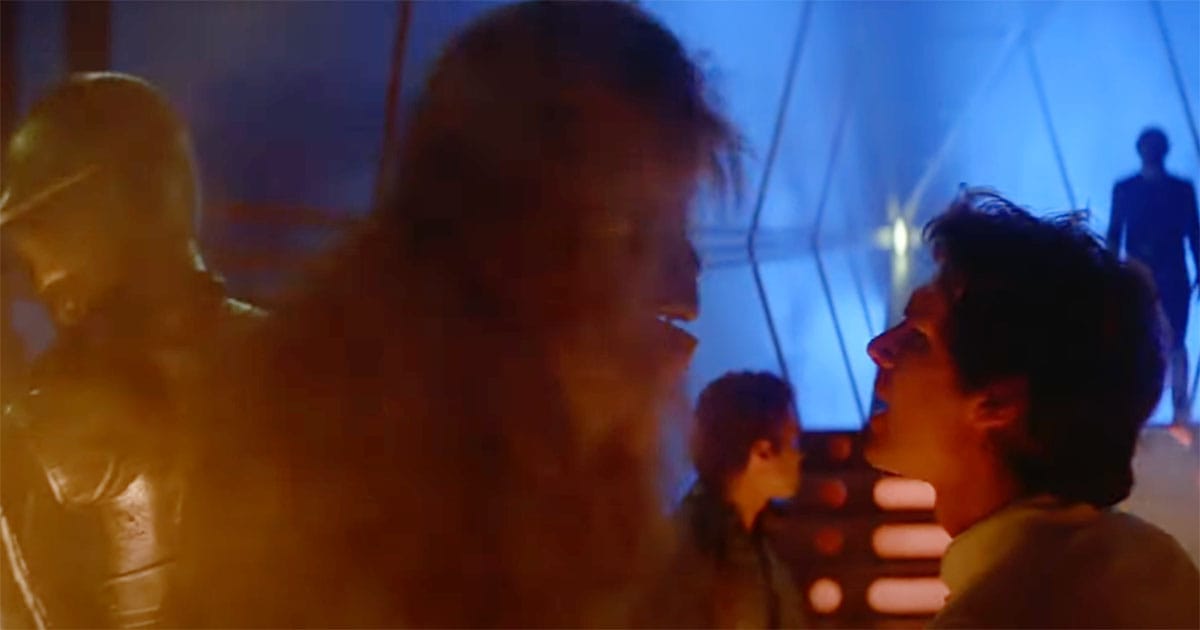
Before Han is frozen, he tells Chewbacca to protect Leia. It is not a command given to a subordinate, but a charge entrusted to a brother. Chewbacca accepts it without hesitation, shifting instantly from grief to a sense of responsibility. His strength lies not only in physical power but in his ability to endure pain without abandoning duty.
In "Return of the Jedi," Chewbacca's loyalty turns into action once again. Captured in an attempt to rescue Han, he endures imprisonment in Jabba the Hutt's dungeon without complaint. His patience is rewarded when he is finally reunited with Han, not as a rescuer but as a fellow captive sharing the burden of risk. Later, during the Battle of Endor, Chewbacca commandeers an Imperial Walker, helping to turn the tide in favor of the Rebels. His actions are never selfish. They are part of a greater mission bound in friendship and honor.
In each trial, Chewbacca remains true, not just to Han but to the larger cause his friend comes to serve. His loyalty does not waver under pressure. Instead, it grows stronger, revealing a soul tempered by hardship and a will anchored in courage.
The Wookiee Code – Cultural Roots of Loyalty
The concept of the Wookiee life debt, though never fully explained in the original trilogy, became one of the most enduring aspects of Chewbacca's legend. Fans of "Star Wars" understood instinctively that this was not merely a narrative device to explain why a seven-foot alien followed a smuggler across the galaxy. It was something older and deeper, more profound—a reflection of a code of honor seldom portrayed in modern storytelling.
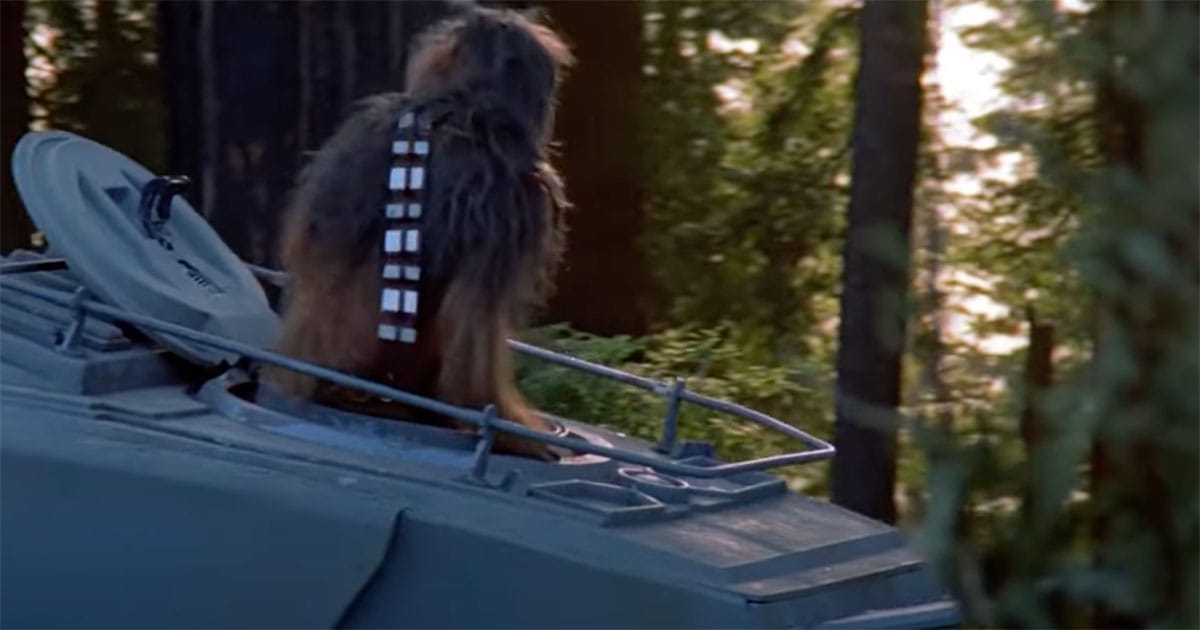
Within the lore established in early expanded universe sources such as "Heir to the Empire" and "The Star Wars Sourcebook" by West End Games, the Wookiee life debt is a solemn vow. When a Wookiee's life is saved, he binds himself to his rescuer in eternal loyalty. This bond is not servitude. It is a conscious act of honor, freely given. In Chewbacca's case, it becomes the guiding principle of his life.
Such a tradition mirrors real-world warrior codes. The Japanese bushido ideal emphasized loyalty, courage, and death before dishonor. In the Norse sagas, the comitatus bond between a chieftain and his men demanded mutual loyalty and valor. Even in the Homeric epics, men who fought and suffered together were bound together in bonds stronger than blood.
Chewbacca's code is not spelled out in long monologues. It is revealed in action. His fidelity to Han Solo and later to the Rebel cause shows how traditional values can animate even a galaxy far, far away. The Wookiee life debt revives the age-old idea that friendship, once earned, becomes sacred—a bond sealed not by law, but by character.
The Quiet Strength We Need Today
Chewbacca's loyalty is not loud. It is not explained with grand speeches or dramatized with emotional exposition. It is lived. Through his every action in the original trilogy, he becomes a symbol of a kind of strength that is increasingly rare—a strength rooted in devotion to others, in duty freely chosen, and in a bond that neither time nor peril can sever.
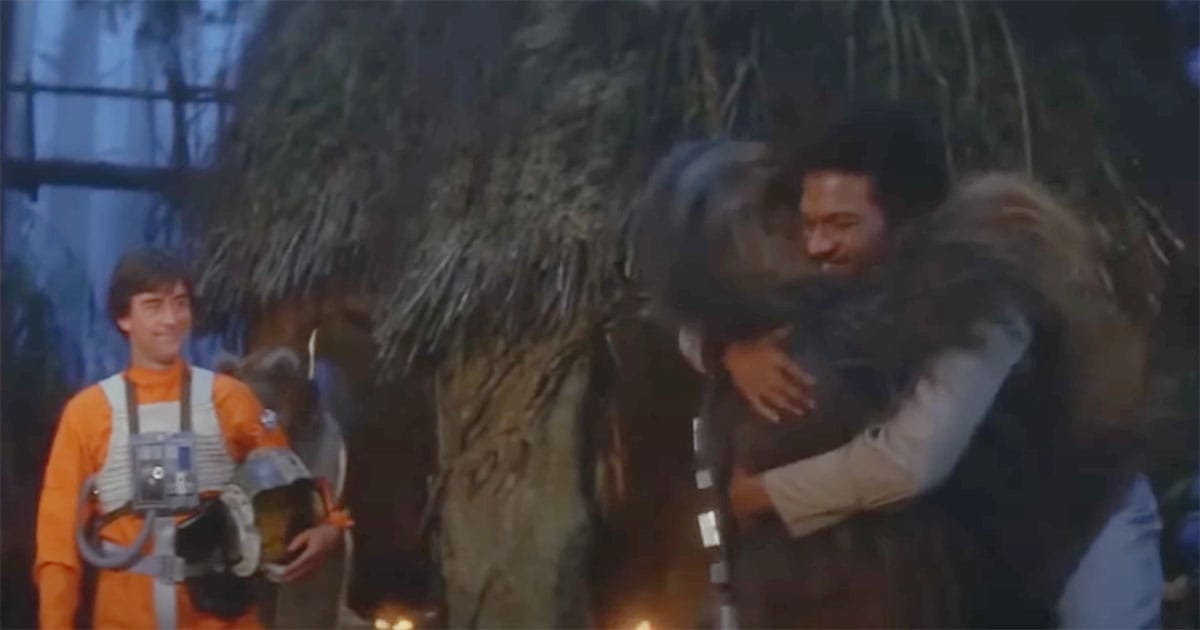
In an era when fictional heroes often waver in purpose or are written to prioritize personal gain over sacrifice, Chewbacca's character serves as a quiet rebuke. He reminds us that some of the most powerful virtues are those least flaunted. Loyalty is not fashionable. It does not seek attention. But when it shows up—in friendship, in brotherhood, in battle—it changes everything.
For fans of classic science fiction, Chewbacca represents more than a beloved character. He is a blueprint. A standard. A reminder that in stories and in life, a man's greatness is often measured not by his victories, but by his faithfulness to those he cares for.
In Chewbacca, "Star Wars" gave us a hero not defined by command or charisma, but by the simple, enduring act of being there—always. That is the kind of strength we need more of today.

